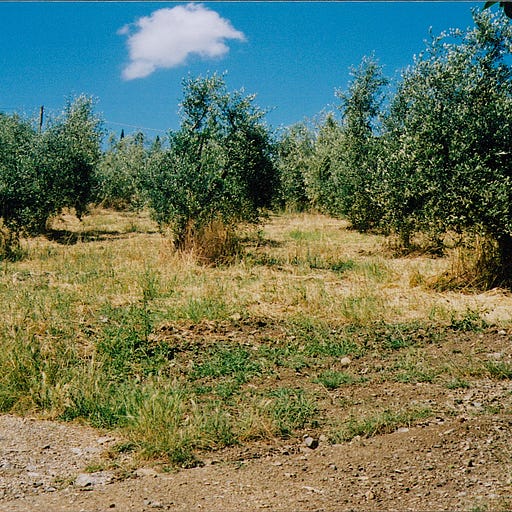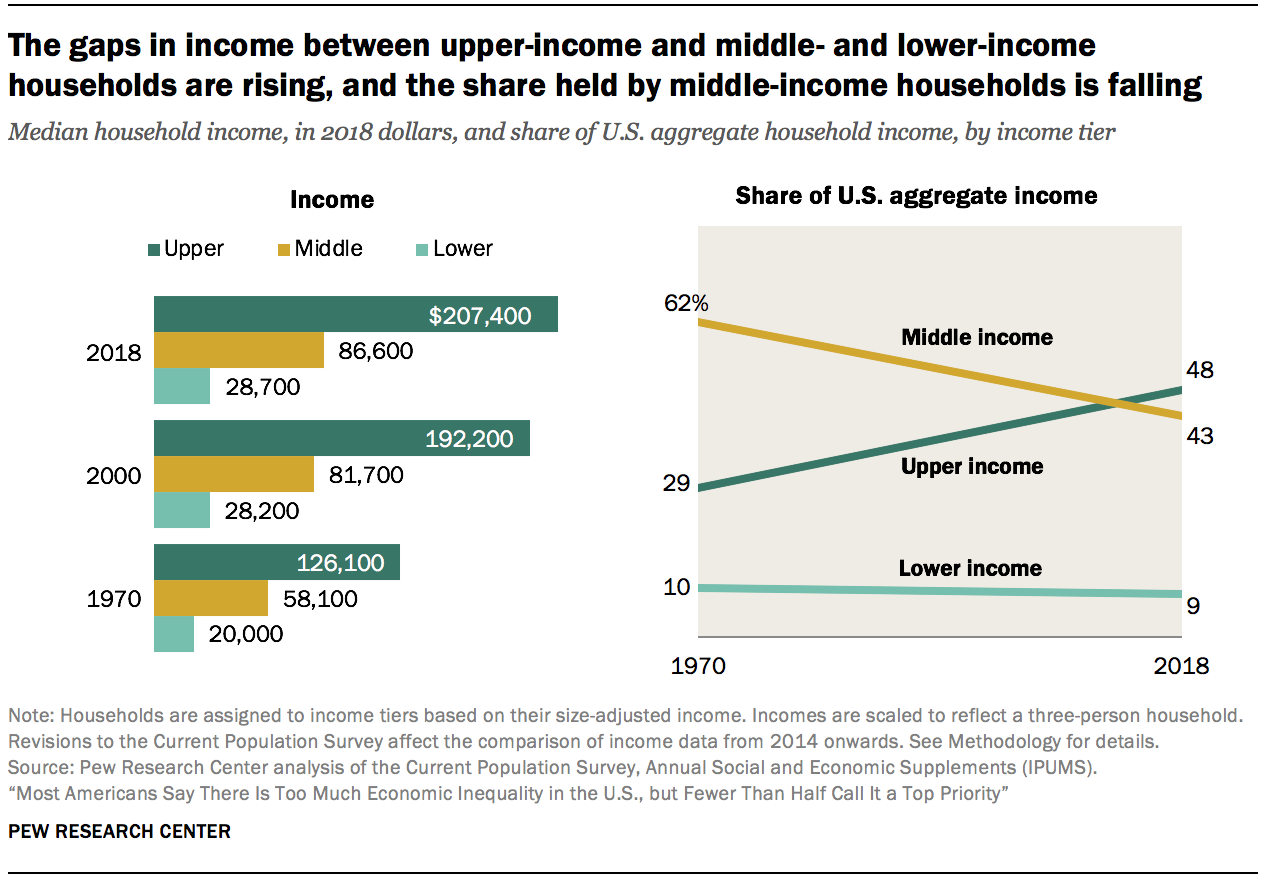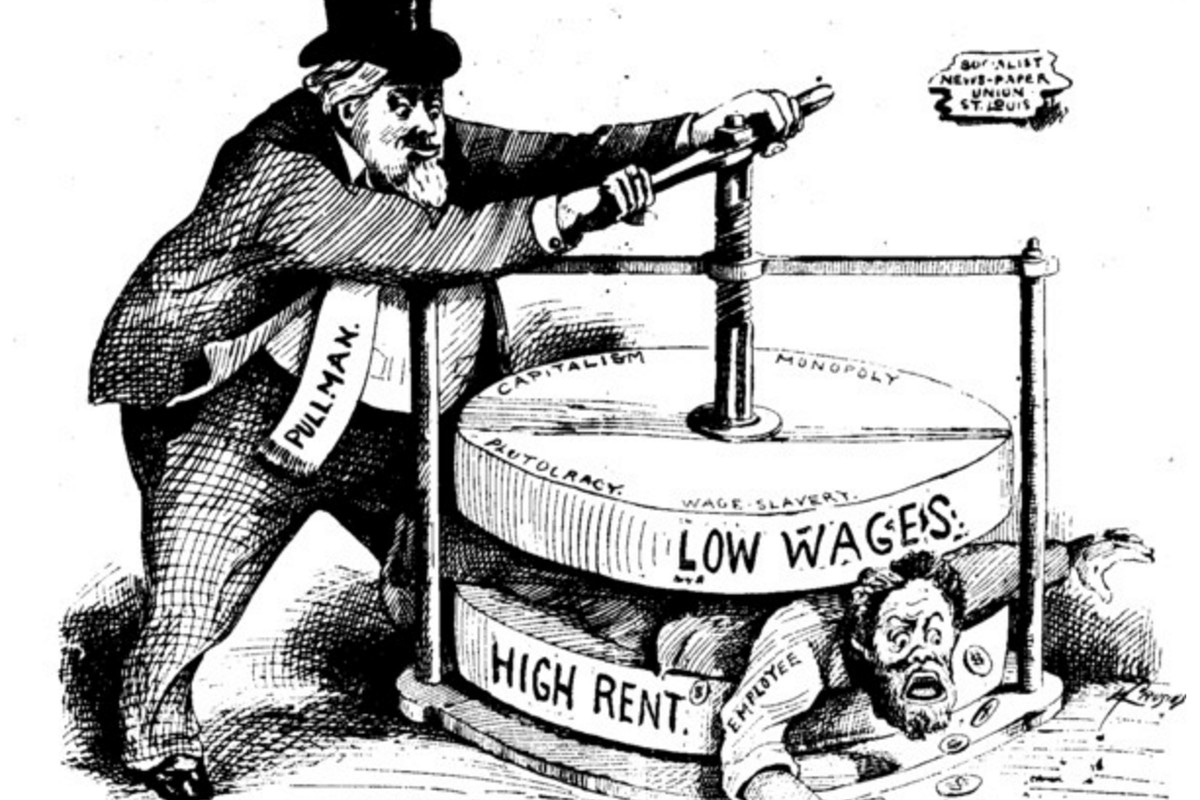Is A Small Western Town An Anomaly Or Prediction?
Welcome to Crime and Punishment: Why the Poor Stay Poor in America. I’m thrilled that you signed up to read my newsletter, and I hope that together, we can make a difference.
Income and wealth inequality is a “thing” now. Most people know how obscenely rich the rich have gotten, how the middle class is nearly eliminated and the working poor have increased threefold in the last few decades.¹ I’ve also written about income and wealth inequality a few times before on Crime and Punishment because it’s a trend we have to question and understand in order to fix. It is not a good thing. Fairly recent statistics detailing the rising income and wealth inequality in the U.S. from the Pew Research Center show that there is a trend: the rich, are in fact getting richer, and the middle class has been hollowed out and is a mere shell of its former, robust self and the working poor have increased. Check out these graphs showing the changes in income from 1970—2018. But nothing brings statistics to life better than a good story, in this case, told in the form of a television segment focusing on one American community, and a few people who live there at wildly opposite ends of the economic spectrum. CBS Sunday Morning is superb at telling stories, and this one just might show us our future. It focuses on the stunning beauty of Jackson Hole, Wyoming —who wouldn’t want to live among the natural splendor of the Tetons and nestled adjacent to the southern border of Yellowstone National Park? I’d love to at least visit, but I’m afraid I couldn’t even afford a sandwich let alone a hotel room. And the average price of a home in Jackson Hole is $3.5 million (not a typo!). According to this CBS report, Jackson Hole has the greatest wealth inequality gap in the U.S. Enjoy this six minute segment from last week’s CBS Sunday Morning show.  It’s interesting and a bit scary that experts are referring to today’s economic inequality as the “Second Gilded Age” (and have been for quite a few years).² It appears, at least on the surface, that our economy is following the same pattern: the first gilded age lasted from about 1870—1900 and saw the rise of insane wealth in a few, like the Vanderbilts, Carnegies and Rockefellers, political unrest, strong anti-immigrant sentiment and a crush of the working poor. It ended, in part, with a stock market crash and a progressive movement that righted a few of the wrongs through new laws. Then came the "roaring 20's", another stock market crash and the Great Depression. Today, we once again have concentrated wealth in the hands of a few³, a nearly crazy partisan divide with competing calls for political change, and a much greater number of working people living on the edge and visiting food pantries for sustenance. This is, of course, an incredibly broad brush of 150 years of history. And to be fair, most humans who accumulate great wealth one way or another, give back to their communities with donations, sometimes large enough to change both individual lives and our entire society. How about that Andrew Carnegie, often referred to as a robber baron, who donated millions to build and oversee our public library system? But is philanthropy enough? During our economy’s cyclical ups and downs, millions of our fellow residents suffer and millions die. As citizens, in what is for now, a participatory democracy, we each have an obligation to question these patterns and offer solutions for change, even if that is simply researching the issues and candidates and voting. I’d love to hear your thoughts on these issues. Are we living through a second “Gilded Age”? Should we rely on the same solutions, like philanthropy to solve the same problems, or perhaps we should make a few structural changes to our system to make our economy work for more of us? Are these loaded, biased questions? Have at it in the Comment Section below. And before you go…
And speaking of communities, you can also become a participating member of the Crime and Punishment community by signing up right now for a free or paid subscription. Thanks in advance for your support—it allows me to keep writing! You’re on the free list for Crime and Punishment: Why the Poor Stay Poor In America. All posts are free for now, but if you’d like to get ahead of the crowd, feel free to support my work by becoming a paid subscriber. | |||||||||||||||||||||||||||||||||||||||||||||||||
Older messages
Weekend Reads
Sunday, October 16, 2022
How Political Donations Are Shifting For The Midterms
Questions About Grant Writing? Get Your Answers Here!
Saturday, October 8, 2022
Stop by Crime and Punishment on Saturday, October 8 (that's tomorrow!) and leave your comments or questions about grant writing in the thread be…
Grants For Artists And Others
Monday, October 3, 2022
Listen now (11 min) | How A Grant Award Can Ease Financial Pain & Help Your Career
Sunday Evening Reads: "Administrative Burdens"
Monday, September 26, 2022
Why We Can't Seem To Make Government Less Complicated
Celebrating One Year of Crime and Punishment
Saturday, September 17, 2022
Listen now (10 min) | A Huge Thanks! And Where We Go From Here...
You Might Also Like
Please Ignore These Popular TikTok Tax 'Hacks'
Saturday, March 1, 2025
Sour Cream Makes a Better Egg Wash Than Eggs. Maybe don't trust tax "loopholes" coming from a content creator. Not displaying correctly? View this newsletter online. TODAY'S FEATURED
⚡ Amazon Lightning Deal! 12 Hours Only! ⚡
Saturday, March 1, 2025
Special Offer From our Friends at Good Housekeeping ⚡ Amazon Lightning Deal! 12 Hours Only! ⚡ View in Browser 28-day mediterranean diet. Alternating images of meals including chicken skewers and cous-
Weekend: Are My Married Friends Being Rude? 😤
Saturday, March 1, 2025
— Check out what we Skimm'd for you today March 1, 2025 Subscribe Read in browser Header Image But first: a cute (and inexpensive) tumbler for your morning coffee Update location or View forecast
Hit the Courts This Spring in Our Favorite Tennis Shoes
Saturday, March 1, 2025
If you have trouble reading this message, view it in a browser. Men's Health The Check Out Welcome to The Check Out, our newsletter that gives you a deeper look at some of our editors' favorite
"I Might Not Be Getting Anything Done, But At Least I'm Not Having Fun"
Saturday, March 1, 2025
Do Americans actually resist pleasure? ͏ ͏ ͏ ͏ ͏ ͏ ͏ ͏ ͏ ͏ ͏ ͏ ͏ ͏ ͏ ͏ ͏ ͏ ͏ ͏ ͏ ͏ ͏ ͏ ͏ ͏ ͏ ͏ ͏ ͏ ͏ ͏ ͏ ͏ ͏ ͏ ͏ ͏ ͏ ͏ ͏ ͏ ͏ ͏ ͏ ͏ ͏ ͏ ͏ ͏ ͏ ͏ ͏ ͏ ͏ ͏ ͏ ͏ ͏ ͏ ͏ ͏ ͏ ͏ ͏ ͏ ͏ ͏ ͏ ͏ ͏ ͏ ͏ ͏ ͏ ͏ ͏ ͏ ͏ ͏ ͏
“Fog” by Emma Lazarus
Saturday, March 1, 2025
Light silken curtain, colorless and soft, / Dreamlike before me floating! ͏ ͏ ͏ ͏ ͏ ͏ ͏ ͏ ͏ ͏ ͏ ͏ ͏ ͏ ͏ ͏ ͏ ͏ ͏ ͏ ͏ ͏ ͏ ͏ ͏ ͏ ͏ ͏ ͏ ͏ ͏ ͏
savourites 96
Saturday, March 1, 2025
escaping the city | abandoning my phone | olive oil ice cream ͏ ͏ ͏ ͏ ͏ ͏ ͏ ͏ ͏ ͏ ͏ ͏ ͏ ͏ ͏ ͏ ͏ ͏ ͏ ͏ ͏ ͏ ͏ ͏ ͏ ͏ ͏ ͏ ͏ ͏ ͏ ͏ ͏ ͏ ͏ ͏ ͏ ͏ ͏ ͏ ͏ ͏ ͏ ͏ ͏ ͏ ͏ ͏ ͏ ͏ ͏ ͏ ͏ ͏ ͏ ͏ ͏ ͏ ͏ ͏ ͏ ͏ ͏ ͏ ͏ ͏ ͏ ͏ ͏ ͏
5-Bullet Friday — How to Choose Peace of Mind Over Productivity, Guinean Beats for Winding Down, Lessons from Legendary Coach Raveling, and a New Chapter from THE NO BOOK
Saturday, March 1, 2025
"Easy, relaxed, breathing always leads to surprise: at how centred we already are, how unhurried we are underneath it all." — David Whyte ͏ ͏ ͏ ͏ ͏ ͏ ͏ ͏ ͏ ͏ ͏ ͏ ͏ ͏ ͏ ͏ ͏ ͏ ͏ ͏ ͏ ͏ ͏ ͏ ͏ ͏ ͏
Nicole Kidman's “Butter Biscuit” Hair Transformation Is A Perfect Color Refresh
Saturday, March 1, 2025
Just in time for spring. The Zoe Report Daily The Zoe Report 2.28.2025 Nicole Kidman's “Butter Biscuit” Hair Transformation Is A Perfect Color Refresh (Celebrity) Nicole Kidman's “Butter
David Beckham's Lifestyle Keeps Him Shredded at 50
Friday, February 28, 2025
View in Browser Men's Health SHOP MVP EXCLUSIVES SUBSCRIBE David Beckham's Lifestyle Keeps Him Shredded at 50 David Beckham's Lifestyle Keeps Him Shredded at 50 The soccer legend opens up


